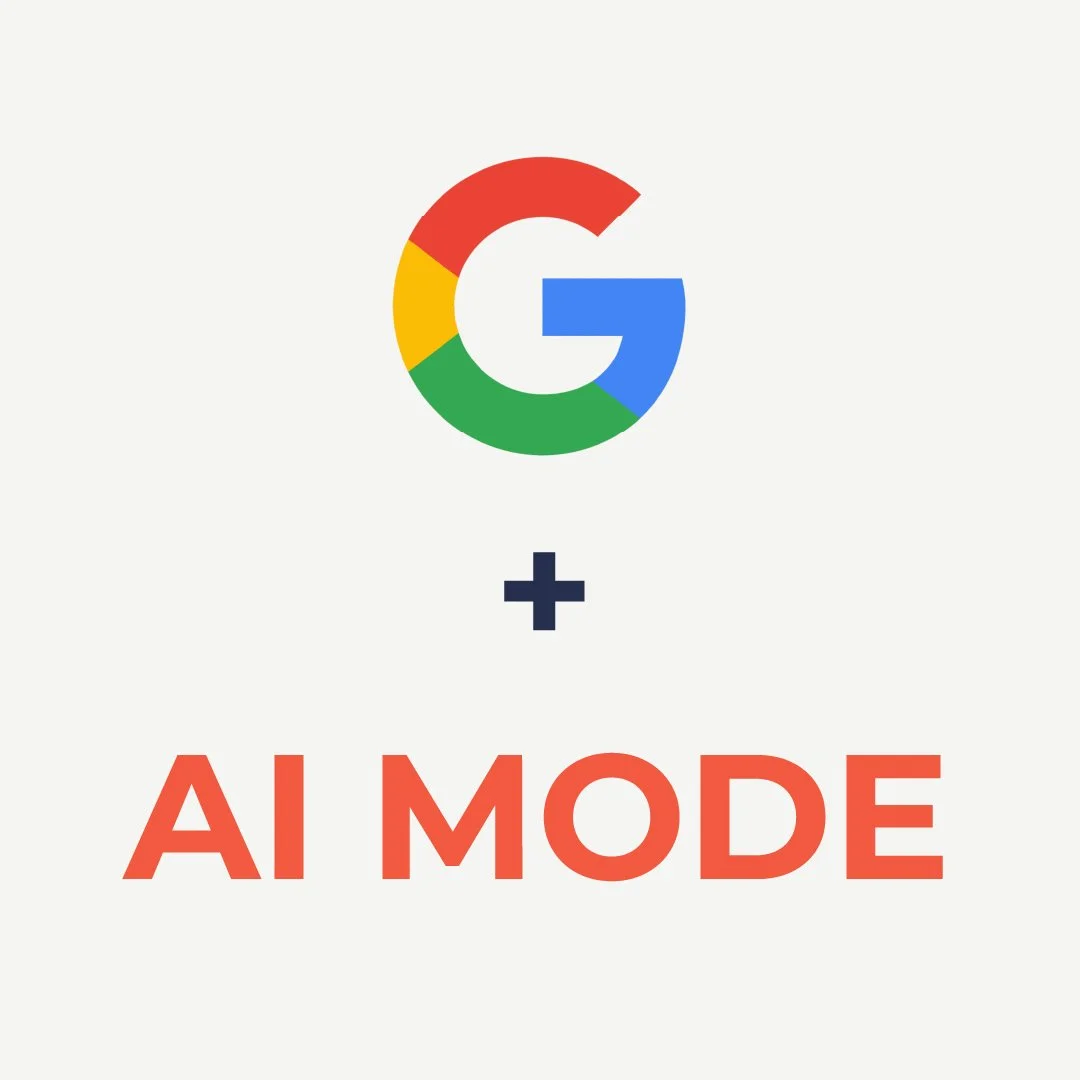Google AI Features: How They Affect Paid and Organic SEO Performance and How to Stay Ahead
July 2025
Google's AI Mode (launched in May 2025) and AI Overviews (launched in May 2024) are changing search by offering comprehensive, conversational answers. While this poses challenges for paid ads and organic SEO, the good news is that marketers can adapt by creating authoritative content, optimizing for direct answers and adjusting paid ad strategies to align with AI's valuation.
The New Google AI Landscape
The competition in Google Search is already challenging, and a major new update is here with Google’s AI Mode. This presents itself as a new and enhanced way to search, providing a different style of answers to user queries – instead of simply delivering search results, Google now offers conversational and more in-depth answers to users’ queries.
The concern for digital marketers is how this will directly impact paid ads and organic SEO presence, website traffic and click-thru-rate (CTR). Google AI Mode, plus Google AI Overviews, may become the first line of defense for searchers, answering questions fast and providing a personalized experience like never before.
Thankfully, there is good news for ad publishers and SEO specialists. The strategy quickly moves to utilizing what AI’s algorithm values to position websites, organic presence and paid ad efforts to not only be seen but to efficiently answer user queries and be the first source of truth.
Strategies to Stay Ahead
To navigate the evolving search landscape, focus on these key areas:
1. Authoritative Content Engineered for AI Use
Since Google AI feature’s goal is to deliver direct answers to user searches, this means your content must be aligned with this same strategy.
A website’s content should be accurate, easy to understand and authoritative.
Focus the content to showcase thought leadership, original research and personalize it to directly answer popular search queries within the desired industry.
Conduct in-depth research to discover what questions or key phrases are being searched and then answer them thoughtfully and in an engaging way.
By creating consistent, high-quality content, Google AI can view your website as valuable and therefore highlight your content within Google AI Overview or Google AI Mode.
Long-form content still matters on websites as it encourages users to explore more after AI has given an overview summary.
2. Optimize for “Zero-Click” Answers
While Google AI aims to provide direct answers, it still relies on underlying content. Therefore, structure your site’s content to make it easy for AI to extract information that it deems important.
Using the E-E-A-T model (experience, expertise, authoritativeness and trustworthiness) will help your content rank higher and potentially, but not guaranteed, within Google AI features.
Additionally, use clear headlines with relevant search keywords, bullet points, FAQs and easy-to-digest summaries.
Create content that immediately addresses more complex queries from the “People Also Ask” SERP feature in Google.
In the past, catchy headlines to draw users in were a key strategy. But now with Google’s AI features, the algorithm values long-tail answers within ad headlines for long-form queries.
With AI Mode being more conversational, creating ad copy to align with a more natural flow could assist with higher ad clicks and maintaining a strong CTR.
3. Adapt Paid Ad Strategies for AI-Powered Search
AI Overviews will potentially feature direct competitors’ websites and ads.
Consider increasing ad spend on branded keywords to help maintain visibility and secure users who are already searching for your brand.
Oftentimes, Google Performance Max and Shopping ads are placed in Google AI Overviews; therefore, consider running a Performance Max campaign alongside your current paid search ads to enhance your overall Search performance.
Be flexible and adapt new KPIs to report on or value. Time-honored CTRs may decline, so reviewing other metrics (such as conversion rates, engagements, time spent on websites, etc.), should be taken into consideration more so than they were in the past.
Google AI features can be intimidating to current and future ad publishers. However, staying on top of AI trends within Google Search, Google Ads and SEO strategies will facilitate a stable, successful paid ad and organic SEO presence within the ever-relevant search market.

